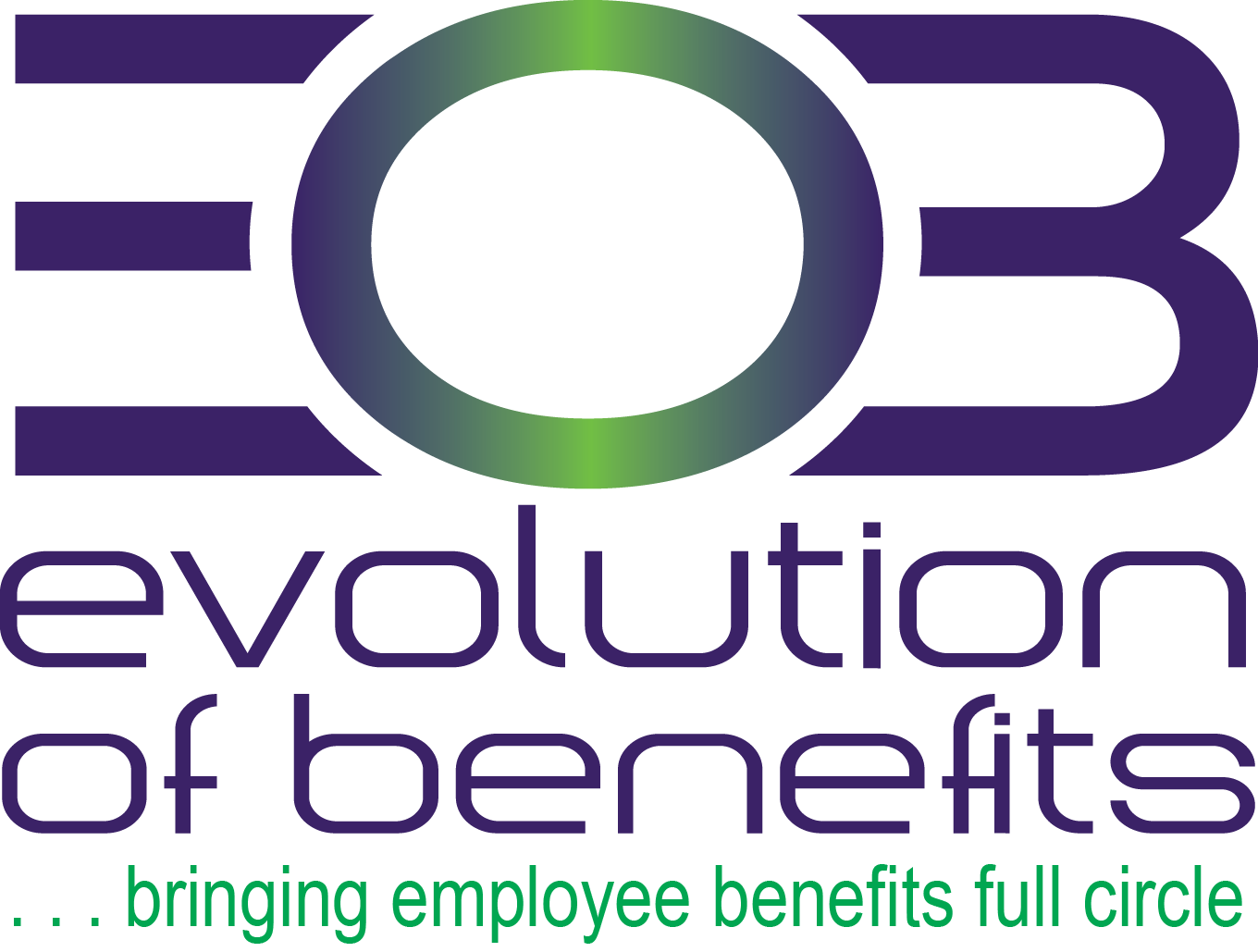Live Well Work Well Newsletter – Self-care and Your Mental Health

More than half of adults in the United States will experience mental illness—which refers to a variety of conditions that affect one’s mood, behavior, feelings or thinking—at some point in their life. Mental illnesses can occur occasionally, while others are chronic. Common mental illnesses include anxiety, depression, schizophrenia and bipolar disorder.

Mental Health Awareness Month, observed every May, is a time to raise awareness about mental health, break the stigma and support people with mental illness.
View and download the latest Live Well, Work Well newsletter
Posted on May 2, 2021 by Evolution of Benefits
Skin Cancer Prevention Month

Do you know what your largest organ is? No, it’s not your intestines or your lungs. Believe it or not, it’s actually your skin. Despite this, many people forget about their skin when it comes to personal maintenance.
Perhaps it’s not surprising, then, that skin cancer is the most common type of cancer in the United States, affecting 1 in 5 Americans. The good news is that it’s also very curable. In fact, skin cancer can almost always be cured when found and treated early. That’s why taking preventive measures is so important.
Speak with your doctor or dermatologist about a skin care regimen that’s right for you. Simply applying sunscreen daily may be enough to reduce your risk.
Take action: View and download the latest National Health Observance newsletter – PDF
Posted on May 2, 2021 by Evolution of Benefits
HR Insights – Workplace COVID-19 Vaccination Programs

Workplace COVID-19 Vaccination Programs
While decisions regarding vaccine distribution vary by state and local governments, eligibility will soon expand to most adults in the United States. This means it’s time for employers to prepare to put plans into action. For some organizations, these plans may include a workplace vaccination program.
This HR Insights article provides an overview of guidance from the Centers for Disease Control and Prevention (CDC) for workplace vaccination programs, including guidance for on-site and off-site vaccinations, and general considerations for employers.
Download this newsletter for information about providing COVID-19 vaccines to your employees.
Posted on May 2, 2021 by Evolution of Benefits
May News Brief: CDC Updates Outdoor Mask Guidance for Fully Vaccinated People

The new guidance says that people fully vaccinated can gather or conduct activities outdoors without wearing a mask except in certain crowded settings and venues. Fully vaccinated people can participate in the following activities without a mask:
• Walking, running or biking outdoors with members of the same household
• Attending a small, outdoor gathering with fully vaccinated family and friends
• Attending a small, outdoor gathering with fully vaccinated and unvaccinated people
• Dining at an outdoor restaurant with friends from multiple households
For those fully vaccinated, the CDC still recommends wearing a mask in indoor settings.
According to the agency, it is also safe for unvaccinated people to walk, run or bike outdoors with members of their household or attend a small, outdoor gathering with fully vaccinated family and friends without wearing a mask. However, the CDC recommends that unvaccinated people continue to wear a mask when around unvaccinated people, including at both indoor and outdoor gatherings.
Posted on May 2, 2021 by Evolution of Benefits
HR Insights – CDC Guidance for Workplace COVID-19 Vaccination Programs

CDC Guidance for Workplace COVID-19 Vaccination Programs
This HR Insights article provides an overview of guidance from the Centers for Disease Control and Prevention (CDC) for workplace vaccination programs. As of this writing, vaccine programs are not yet available to many employers, depending on the type of organization and guidance from local officials. However, vaccination programs will extend to additional workplaces as vaccine availability increases, meaning that employers should begin planning accordingly. Employers should continue to monitor CDC guidance and follow direction from local health officials.
Download this newsletter for information about providing COVID-19 vaccines to your employees.
Posted on May 2, 2021 by Evolution of Benefits
Benefits Buzz: DOL Issues ARPA COBRA Subsidy Model Notices, FAQs | Consolidated Appropriations Act and Mental Health Parity FAQs

On April 7, 2021, the Department of Labor (DOL) issued FAQs and model notices for the COBRA premium assistance provisions of the American Rescue Plan Act (ARPA).
The Consolidated Appropriations Act, 2021 (CAA) amended the Mental Health Parity and Addiction Equity Act of 2008 (MHPAEA) to provide additional protections. On April 2, 2021, the DOL, Health and Human Services (HHS) and the Treasury jointly issued FAQs to clarify these amendments.
In particular, the CAA requires group health plans and health insurance issuers to conduct comparative analyses of the nonquantitative treatment limitations (NQTLs) used for medical and surgical benefits as compared to mental health and substance use disorder (MH/SUD) benefits.
For more information about these items, read our Benefits Buzz newsletter, and contact Evolution of Benefits today.
Posted on May 2, 2021 by Evolution of Benefits
DOL issues model notices, FAQ for COBRA subsidy in the ARPA

On April 7, 2021, the U.S. Department of Labor (DOL) issued FAQs and model notices for the COBRA premium assistance provisions of the American Rescue Plan Act (ARPA). The ARPA provides a 100% subsidy for employer-sponsored group health insurance continued under COBRA and similar state continuation of coverage programs for eligible individuals. The subsidy applies from April 1 through Sept. 30, 2021. The notices and the FAQs appear
on a new DOL webpage dedicated to the ARPA COBRA subsidy.
Important Dates
March 11, 2021 – ARPA signed into law.
April 1, 2021 – ARPA subsidy for COBRA premiums began.
Sept. 30, 2021 – ARPA subsidy for COBRA premiums expires.
Posted on April 13, 2021 by Evolution of Benefits
HR Compliance Bulletin: American Rescue Plan – Changes to FFCRA Employee Leave

The American Rescue Plan Act (ARPA), enacted March 11, 2021, includes changes to emergency paid sick leave and paid family leave under the Families First Coronavirus Response Act (FFCRA). The ARPA extended tax credits through Sept. 30, 2021, for employers that continue to provide FFCRA leave voluntarily (beyond the Dec. 31, 2020, expiration date) and made changes to tax credit eligibility for both types of FFCRA leave.
Highlights:
FFCRA Leave Remains Voluntary
ARPA did not reinstate the FFCRA employee leave mandates.
Tax Credit Extension
Employer tax credits are extended through Sept. 30, 2021, for wages, health plan expenses and Medicare tax for FFCRA leave provided voluntarily.
FFCRA Paid Leave
The FFCRA employer tax credits apply to 80 new hours of paid sick leave per employee, 12 weeks of paid family leave, and to leave for new reasons.
Click here to view and download the FFCRA ARPA HR Compliance Bulletin
Posted on April 1, 2021 by Evolution of Benefits
HR Compliance Bulletin: COBRA Subsidy Provisions of the American Rescue Plan Act

The American Rescue Plan Act (ARPA), signed into law March 11, 2021, provides a 100% subsidy of premiums for employer-sponsored group health insurance continued under the Consolidated Omnibus Budget Reconciliation Act of 1986 (COBRA) and similar state continuation of coverage (mini-COBRA) programs.
COBRA requires group health plans to allow covered employees and their dependents to continue their group health plan coverage when it would be lost due to specific events, such as a termination of employment or reduction in working hours. Individuals are usually allowed to continue their COBRA coverage for 18 months, although some similar state mini-COBRA laws mandate a longer coverage period.
Under COBRA, group health plans may require those covered to pay 102% of the premium for their continuing health insurance, leading many eligible individuals to decline coverage. The ARPA subsidy covers the full cost of COBRA or mini-COBRA premiums from April 1 – Sept. 30, 2021, for “assistance-eligible individuals.”
Click here to view and download the COBRA ARPA HR Compliance Bulletin
Posted on April 1, 2021 by Evolution of Benefits
HR Brief – April 2021

Topics include
Top 10 Workplace Discrimination Claims
In the 2020 fiscal year, the Equal Employment Opportunity Commission (EEOC) resolved more than 70,804 charges of workplace discrimination. Discrimination lawsuits can be very time-consuming and expensive for employers, and can result in a loss of employee morale or reputation within the community.
Top Causes of Discrimination
According to the EEOC, the following are the top 10 reasons for workplace discrimination claims in fiscal year 2020:
• Retaliation—37,632 (55.8% of all charges filed)
• Disability—24,324 (36.1%)
• Race—22,064 (32.7%)
• Sex—21,398 (31.7%)
• Age—14,183 (21.0%)
• National Origin—6,377 (9.5%)
• Color—3,562 (5.3%)
• Religion—2,404 (3.6%)
• Equal Pay Act—980 (1.5%)
• Genetic Information—440 (0.7%)
These percentages add up to more than 100% because some lawsuits were filed alleging multiple reasons for discrimination.
Steps for Employers
Employers should consider the following steps to protect themselves from retaliation and other discrimination claims:
• Audit their practices to uncover any problematic situations.
• Create a clear anti-retaliation policy that includes specific examples of what management can and cannot do when disciplining or terminating employees.
• Provide training to management and employees on anti-retaliation and other discrimination policies.
• Implement a user-friendly internal complaint procedure for employees.
• Uphold a standard of workplace civility, which can reduce retaliatory behaviors.
For more information and for tips on how to protect your business, contact Evolution of Benefits today.
Preparing HR for Future Health Crises
The COVID-19 pandemic was a wake-up call for HR departments in 2020. Suddenly, employees were looking to HR teams for guidance in areas not typically considered their responsibility.
This article outlines four ways HR teams can prepare for future public health crises. Employers can use this information to help cope with the current COVID-19 pandemic fallout and beyond.
Posted on March 31, 2021 by Evolution of Benefits
Client and Employee Resources
![]() The more your employees understand your benefit plans the more they become educated, empowered consumers. The programs you provide will also gain an enhanced value.
The more your employees understand your benefit plans the more they become educated, empowered consumers. The programs you provide will also gain an enhanced value.
As your strategic partners in employee benefits, we can provide multiple avenues of ongoing support, including:
- Employee Meetings (English and Spanish)
- Webcasts
- Payroll Stuffers
- Poster Campaigns
- Newsletters
Recent Posts
- Voluntary Benefits – ERISA Compliance Exemption April 18, 2025
- Evolution of Benefits wishes you & your family a wonderful Easter! 🐣💚💜 April 18, 2025
- Employee Engagement Tips for Small Businesses April 15, 2025
- CMS Finalizes Revised Simplified Determination Method for 2026 Creditable Coverage Determinations April 15, 2025
- DOL Updates Model Employer CHIP Notice April 15, 2025
- HR Insights – Engaging Generation Z in the Workplace April 15, 2025
- Stress Vs. Anxiety April 15, 2025
- Celebrate National Pet Day by giving your furry friend extra love! Show off those pets 🐾💛 April 11, 2025
- Recipe of the Month – Pineapple Chicken (April) April 11, 2025
- Staying Educated on Mental Health Benefits April 11, 2025
Newsletter and Article Categories
E-Verify is a web-based system that allows enrolled employers to confirm the eligibility of their employees to work in the United States. Click the image below to begin.




















